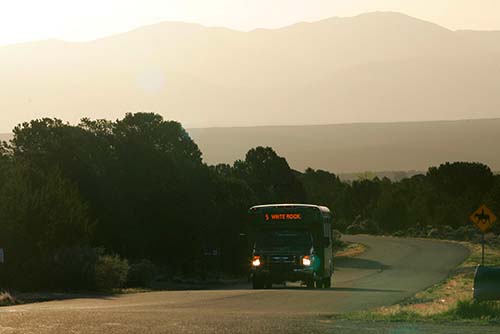Three-dozen American Indian and Alaska Native tribes will split nearly $10.4 million in Tribal Transit Grants issued by the U.S. Department of Transportation’s Federal Transit Administration.

The funding, which stems in part from last year’s Consolidated Appropriations Act and the American Rescue Plan Act, is aimed at helping tribes in rural areas address the transportation needs of tribal citizens, including elders, people with disabilities and youth.
Demand for the grants outstripped the availability of funding in the most recent round. According to the FTA, the department received 51 project proposals totaling about $18.8 million from 47 tribes.
Want more news like this? Get the free weekly newsletter.
The tribes selected for the grants spanned 12 states, with Alaska (9), Oklahoma (7) and New Mexico (5) having the largest share of successful applicants.
Grant awards ranged from $12,500 to more than $1 million. In broad terms, the proposals focused on enhancing economic development opportunities, increasing safety and increasing accessibility for the tribal nations.
“Resources to tribal transit programs in Indian Country are critical in addressing connectivity for Tribal residents to go to work, school, shopping, medical appointments or other daily necessities,” said Arlando Teller (Navajo), who serves as Deputy Assistant Secretary for Tribal Affairs.
Highlighting the high cost of infrastructure in remote areas of Alaska, the Kenaitze Indian Tribe of Alaska received the largest award at nearly $1.2 million, which will fund a pilot program for fixed-route service for tribal members across Alaska’s central Kenai Peninsula. The program will supplement existing services and focus on offering tribal members affordable transportation options.
As well, the second largest award was $961,000 for Alaska’s Seldovia Village Tribe, which will use the grant to build a replacement dock for the Seldovia Bay Ferry. The project is expected to help improve residents’ access to jobs, education and community services.
Other large awards included $883,000 for the Leech Lake Band of Ojibwe to launch a new transit service on the tribe’s north-central Minnesota reservation, $785,000 for the Kaw Nation of Oklahoma to establish a fixed-route and demand transit services, and $612,000 for California’s Yocha Dehe Wintun Nation to replace older vehicles with new battery-electric models.
Several tribes including Alaska’s Craig Tribal Association, Klawock Cooperative Association and Petersburg Indian Association; New York’s Seneca Nation of Indians; and Oklahoma’s Alabama Quassarte Tribal Town and Wichita and Affiliated Tribes received smaller grants in the $12,500 to $25,000 range to develop transit plans.
Calling the current round of grant funding “an important step” for helping tribes meet transportation needs on their reservations, Transportation Secretary Pete Buttigieg said tribes should look ahead and prepare to apply for the forthcoming Bipartisan Infrastructure Law funds “to meet the unique transit needs of their residents.”
Additional funding opportunities in the Bipartisan Infrastructure Law include $229 million for public transportation on reservation. The department also will open a series of competitive grants from the 2022 through 2026 fiscal years.
